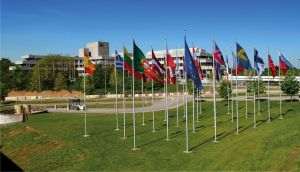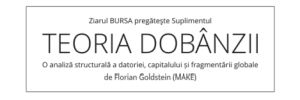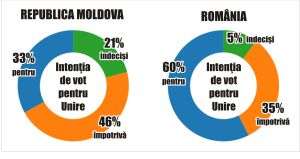The second month of spring was a stormy one for the PSD-PNL political coalition, which had to face the media revelations about how the doctor Cătălin Cîrstoiu - the candidate of both parties for the position of general mayor of the Capital - made his fortune, on the basis of at least a moral incompatibility between the position held - as general manager of the Bucharest University Hospital - and the clinic owned by his wife where the doctor treated several patients who had previously passed through the public hospital. The scandal ended only on April 23, when the leaders Marcel Ciolacu and Nicolae Ciucă gave up Cîrstoiu's candidacy, and the PSD and PNL teams mobilized to collect the necessary signatures to submit the candidacies for the position of general mayor of the Capital of Gabriela Firea and Sebastian Burduja, the two candidates stating that they will not attack each other in the electoral campaign and that their goal is to remove Nicuşor Dan from the head of the Bucharest municipality administration.
On the financial level, despite the budget deficit of 2.06% of GDP recorded at the end of March, the Government continued in April the policy of increasing some budget expenditures, including for the investments made by local public administrations, but also for financing schemes of investments from energy and those intended for small and medium enterprises. Since revenue is needed to finance budget expenditures, the Ministry of Finance launched a new issue of Tezaur government bonds in the middle of last month, after in the first part of April it managed to attract almost 3.2 billion lei from the second edition of current year of the Fidelis bond issue.
In these conditions, no one was surprised by the decision of the Board of Directors of the National Bank of Romania, which established in April the maintenance of the monetary policy interest rate at the level of 7%, the maintenance of the interest rate for the lending facility (Lombard) at 8% and the interest rate related to the deposit facility at 6%.
However, the Ministry of Finance and the Government as a whole received good news from the Standard&Poors agency, which last month maintained Romania's government debt rating at BBB-/A3 for long-term and short-term foreign currency debt, as well as the stable outlook. Furthermore, in order to explain to international investors the new fiscal measures in our country, Marcel Boloş, the Minister of Finance, went to Washington in April where he had meetings with the representatives of the International Monetary Fund and the main investment funds, as well as with the representatives of the rating agencies Standard&Poors and Moody's.
As for this year's budget revenues, they will register a decrease in the field of gambling, after the Parliament adopted the prohibition of gambling in localities with less than 15,000 inhabitants, a measure which, according to industry representatives, would negatively affect over 200 small and medium-sized companies operating in this economic sector.
The need for budget revenues and investment funds led Prime Minister Marcel Ciolacu to visit Qatar and the United Arab Emirates in the second half of April, with the hope of attracting 15 billion euros from the Gulf area for more important infrastructure projects in our country. The need to start, continue and complete some transport investments in Romania was also discussed by President Klaus Iohannis with the other leaders of the Three Seas Initiative at the summit that took place at the beginning of April in Lithuania and where they talked about energy interconnection, digital interconnection , but also about the financing and implementation of the Rail2Sea and Via Carpathia projects.
Related to last month's report, we also show that President Iohannis participated in an extraordinary summit of the European Council after Iran attacked Israel with drones and missiles, an attack that was rejected by the Jewish state and its Western allies, but also by the world Arab, among the latter being Jordan. On the occasion of this summit, it was also decided the support that will be given to Ukraine by the European Union in the next period, in order to face the attacks to which it is subjected from the forces of the Russian Federation.
• Gabriela Firea - candidate for the Capital City Hall
The PSD-PNL coalition saw itself in April unable to have a common candidate for the position of General Mayor of the Capital, after the media revealed that the person appointed by the two parties, the doctor Cătălin Cîrstoiu, the manager of the University Hospital, would had certain problems of incompatibility, at least morally, through the prism of the data given in the statement of assets and interests. Although at start, Marcel Ciolacu and Nicolae Ciucă shielded around Dr. Cîrstoiu, later the two asked him to provide the necessary explanations and called him to a meeting of the PSD-PNL coalition. Following this meeting, on April 23, Marcel Ciolacu and Nicolae Ciucă announced that they had given up Cătălin Cîrstoiu's candidacy for the Capital's mayor's office and that each group would have its own candidate in the electoral campaign. The President of the PNL, Nicolae Ciucă, confirmed Sebastian Burduja (the current Minister of Energy), and Marcel Ciolacu announced the candidacy of Gabriela Firea, from the PSD, which in the middle of last year he had removed from the political foreground following the scandal of the Asylums of Horror in Volunteers, but which he had moved to the top of the list of candidates for the European Parliament elections following the designation of Cîrstoiu as a candidate for the local elections in the Capital.
Moreover, Marcel Ciolacu stated that he is firmly convinced that Gabriela Firea will be re-elected mayor general of the Capital, even if PSD is in coalition with PNL, and stated that the goal of the two parties is to prevent Nicuşor Dan and on Cristian Popescu Piedone to become the head mayor of the municipality of Bucharest. However, immediately after the announcement of the candidacy of Gabriela Firea and Sebastian Burduja, Nicuşor Dan announced that the battle for the Capital was between him and Cristian Popescu Piedone, only that the opinion polls that were drawn up in the following days until the end of April showed that Piedone came in 3rd or 4th place in the choices of voters in Bucharest.
Regarding Gabriela Firea's candidacy, Nicuşor Dan recalled that in her previous mandate as mayor general of the Capital, she proposed the five sector PUZs, which were canceled and suspended by the courts and that she would have signed hundreds of illegal documents in the field of urban planning.
• Money for investments and for small and medium-sized companies
The government last month continued the allocation of funds for large public investment projects, for the needs of local public administration and for the financing of support schemes for small and medium-sized enterprises (SMEs).
Thus, through an emergency ordinance adopted in the meeting of April 11, the Executive established the granting of the possibility to local authorities, with the exception of the county seat municipalities and the sectors of the Municipality of Bucharest, by way of derogation from Law no. 273/2006 on local public finances and from the provisions of Law no. 417/2023, to request from the Ministry of Finance the contracting, until September 30, 2024, of loans from privatization revenues, registered in the general current account of the State Treasury, within the limit of 1 billion lei. These loans can be requested to ensure the co-financing of ineligible expenses in order to complete, respectively, the unfinished or non-functional projects carried out within the operational programs financed by European funds in the 2014-2020 programming period. At the same time, loans can also be requested to secure the sums needed to implement the projects financed by the PNRR, under the responsibility of the local budget, highlighted separately in each contract. Local authorities need the approval of the Commission for the authorization of local loans and must, on the date of submission of the documentation, show no arrears on previously contracted loans from privatization revenues. The maximum amount that can be authorized to an administrative-territorial unit is 35 million lei for counties, 20 million lei for municipalities, unlimited for communes and cities, and the repayment period is 1-5 years, with the possibility of early repayment.
Regarding the financing of SMEs, on April 23, the Government adopted an emergency ordinance that started a new stage of the Electric Up financing program, for the installation of photovoltaic panels and the purchase of electric charging stations. Through the new Electric Up2 program, a de minimis aid of up to 150,000 euros is granted for each beneficiary. Concretely, three-quarters of the value of the eligible expenses will be covered by funds received through this program, with SMEs coming up with a financing of 25% of the project value. At the same time, the upper limit of the power installed in the photovoltaic panel system is increased to 150 kWp, to ensure own consumption, the consumption of recharging stations of at least 22 kW for electric and plug-in hybrid electric vehicles with at least two charging points (2x11kW) .
The support given to SMEs and the HoReCa sector is doubled by the environmental benefits, namely the reduction of greenhouse gas emissions in transport, by promoting the infrastructure for energy-efficient road transport vehicles.
At the same time, the normative act also provides for the extension of the implementation term of the financing program until 2032, a term that covers the implementation and monitoring of stages 2 and 3.
The Electric Up2 program will be financed from the state budget with 450 million lei.
Also to support SMEs, after the approval of the IMM Plus state aid scheme by the European Commission on April 9, the Ministry of Finance published the Joint Order establishing the guarantee ceilings by components, the rules for managing the guarantee ceilings , payment of state aid specific to each component of the state aid scheme, as well as grant guarantee and payment agreements and implementation agreements. The budget of the scheme is 12.5 billion lei, and guarantees will be granted within a ceiling of 11.1 billion lei, for 11,500 beneficiaries. Allotments will benefit those who apply for IMM Plus and its components - IMM Romania Plus, Agro Plus, IMM Prod Plus, Construct Plus, Innovation Plus and Rural Plus, the scheme being valid until June 30, 2024. The state aid scheme facilitates access to the liquidity of small and medium-sized enterprises, small mid-cap enterprises and large enterprises whose economic activity has been affected by the armed conflict in Ukraine. At the same time, the implementation of the IMM PLUS Program encourages the development of small and medium-sized enterprises, small enterprises with medium market capitalization and administrative-territorial units, which carry out investment projects in the construction sector. Guarantees will be granted through FNGCIMM, FGCR and FRC. For loans/credit lines, the maximum amount of financing granted to a beneficiary cannot exceed 5 million lei for loans/credit lines for financing working capital, respectively 10 million lei for investment loans. The maximum cumulative amount of state-guaranteed financing that can be granted to a beneficiary under the state aid scheme cannot exceed 10 million lei. For the primary agriculture, fishing and aquaculture sectors, the maximum cumulative amount of state-guaranteed financing that can be granted to a beneficiary under the state aid scheme cannot exceed 5 million lei. The maximum duration of financing is 72 months, in the case of investment loans and in the case of loans/credit lines for working capital the maximum duration of financing is 36 months. In the case of investment loans, credit institutions can grant, at the beginning of the credit period, at the request of the beneficiaries, a grace period of a maximum of 18 months for the repayment of the principal.
In order to finance part of the large infrastructure projects in our country, Prime Minister Marcel Ciolacu, accompanied by some members of the Government, traveled between April 16-18 to Qatar and the United Arab Emirates to have discussions with the authorities there and with the funds of investments in the Gulf area. The declared purpose of the official visit was to attract 15 billion euros for the development and modernization of Constanţa Port, Traian Vuia International Airport in Timişoara, for the construction of the Comarnic-Braşov Highway and the modernization of the Predeal-Braşov railway.
• 3.2 billion lei, borrowed by the Ministry of Finance through the Fidelis II issue
In order to support the expenses of support schemes for the business environment, with investment projects, but also to honor the social expenses provided for in the state budget and increased by various normative acts, the Government needs new budget revenues, especially since in during the month of April, he also paid in advance the pensions of the elderly, their total value amounting to 8.3 billion lei. And as the level of collection remains low, the Ministry of Finance had to approve two issuances of government securities during April. Through the first - Fidelis II, the Ministry of Finance attracted 3.197 billion lei, exceeding by more than 100 million lei the record edition of April 2023. Euro issues were the most accessed in this edition, with a total of over 383.630 million euros, the equivalent of 1.918 billion lei. The second issue - Tezaur tilturi - took place between April 15 and May 9, with maturities of 1 and 3 years, with annual interest rates of 6% and 6.85%, respectively, through which the Ministry of Finance wants to attract the necessary billions of lei supporting budget expenditures.
As a result of the loans made in the last two years, the level of indebtedness rose to 52% of GDP, which raised the discontent of the political opposition, but did not raise questions for the agency Standard&Poors, which during April maintained the rating related to the debt last month of Romania's government at BBB-/A3 for long- and short-term foreign currency debt, as well as the stable outlook.
In all this financial-fiscal context, on April 4, 2024 the members The Board of Directors of the National Bank of Romania decided to maintain the monetary policy interest rate at 7%, the interest rate for the credit facility (Lombard) at 8% and the interest rate related to the deposit facility at 6%. Council members unanimously assessed that, as a whole, the analyzed context justifies keeping the monetary policy interest rate unchanged, with a view to sustainably bringing the annual inflation rate back in line with the stationary target of 2.5% ±1 percentage point, including by anchoring inflation expectations in the medium term, in a way that contributes to the achievement of sustainable economic growth. At the same time, it was reiterated the importance of continuing the careful monitoring of the evolutions of the domestic and international environment, which would allow the adequacy of the instruments available to the BNR in order to fulfill the fundamental objective of price stability in the medium term.
• Parliament banned slots-machines in communes and small towns
The plenary session of the Chamber of Deputies voted on April 9, as a decision-making body, the draft law on gambling with 243 votes in favor and four abstentions, a project by which "casualties" were removed from towns with less than 15,000 inhabitants. According to the law, "the commercial space where the operator operates games of chance must be located in an administrative-territorial unit with a population greater than 15,000 inhabitants." Proof of the number of inhabitants is provided by a certificate issued by the town hall in whose territorial radius the proposed space is located. The interim president of the Chamber of Deputies, the social democrat Alfred Simonis, claimed that "in over 90% of the localities in Romania, this type of activity will no longer be able to be carried out, gambling and gambling will disappear". He added that this is only the first project to be adopted and others will follow, for regulation and elimination in big cities. The law was promulgated by President Klaus Iohannis and entered into force on April 29.
• The government approved the National Financial Education Strategy
In the meeting of April 11, the executive approved the National Strategy for Financial Education 2024-2030, a document through which decision-makers aim to increase the level of knowledge and skills of Romanians and economic operators in Romania in the financial field, so that, as consumers of some financial products, instruments or services, that they can be aware of the risks, but also the opportunities, and when they have to make a decision and to do so responsibly and in an informed manner.
The measures included in the National Financial Education Strategy address several target groups, depending on which the main directions of action are structured: children and young people up to 25 years old (preschoolers, pupils, students), adult population (people over 18 years, this group including both those that carry out income-generating activities and those that do not obtain any kind of income) and economic operators.
The measures proposed in the framework of the strategy will be implemented with the involvement of actors from both the public and the private environment.
• Petre Roman, criminally prosecuted in the Mineriada file from June 13-15, 1990
President Klaus Iohannis approved on April 16, 2024, the requests for criminal prosecution submitted by the Minister of Justice, Alina Gorghiu, at the request of the Prosecutor General of the Public Prosecutor's Office attached to the High Court of Cassation and Justice, concerning Roman Petre, as former prime-minister of the Government of Romania, and Voiculescu Gelu-Voican, as former vice-prime-minister of the Government of Romania for their involvement in the mining raid of June 13-15, 1990. Former Prime Minister Petre Roman and Gelui Voican Voiculescu are accused by prosecutors of committing crimes against humanity in the normative variants provided by art. 439 para. (1) lit. a) (4 secondary passive subjects), lit. f) (at least 2 secondary passive subjects), letter g) (at least 1315 secondary passive subjects), letter j) (at least 1214 secondary passive subjects) Criminal Code, with the application of art. 5 Criminal Code.
• DNA prosecutors intervene in energy corruption
During April, DNA prosecutors announced the completion of two criminal investigation files regarding several corruption crimes committed by the management of major energy companies. Thus, on April 17, the DNA prosecutors indicated, in a press release, that they had ordered the prosecution of 4 (four) natural persons defendants, among whom is Iosif Chircă, who at the time of the commission of the acts was a director within the Complex Energetic Oltenia-Rovinari Electrocentrale Branch. The DNA specifies that Iosif Chircă is being investigated under judicial control, for committing the crime of bribery. During the criminal investigation, plea agreements were concluded with all the defendants and with Adrian Dorin Ecobescu, former director of CET Sud Bucharest, who is also accused of bribery. All five defendants who entered into plea agreements were sentenced to suspended prison terms and ordered to perform unpaid community service for periods of 80-90 days.
The indictment and the plea agreements were submitted to the Bucharest Court.
On April 26, the DNA prosecutors announced in a press release that they had ordered the initiation of criminal proceedings and the detention for 24 hours, starting on April 25, 2024, of the defendant Cătălin-Liviu Stănculescu, head of the Energy Directorate within the Complex Energetic Oltenia (CEO) for committing the offense of influence peddling in a continuous form. The prosecutors claim that in the period 25.07.2022-23.03.2023, at different time intervals, the defendant Stănculescu Cătălin-Liviu, in the mentioned capacity, would have directly received, for himself, the total sum of 13,000 euros from the administrator of a company located in contractual relations with the CEO (witness in question), leading to believe that he would have influence on the CEO Directorate, with powers in approving payments, and that he would cause them to expedite the payment of invoices issued by the businessman's company within a deadline as soon as possible from the date of their issuance. On 06.01.2024, in the city of Bucharest, in the premises of a restaurant, the other defendant, investigated in this case, allegedly promised a person from the management of a state company (witness in the case) the sum of 200,000 euros in connection with the assignment to the defendant's company, under non-competitive conditions, of a contract worth 1,000,000 euros, with the object of demolition and waste management works. On the same occasion, the defendant would have indicated to the witness the way in which he was going to take possession of the contract, namely: rigging the procurement procedure by inserting some preferential requirements in the specifications, which would benefit the defendant's company with which he intended to include in the procedure the submission by the defendant of other offers with a higher price than that of the company with which he intended to win the procedure.
In the case, the prosecutors instituted security measures on the bank accounts belonging to the defendant Stănculescu Cătălin Liviu to guarantee the special confiscation of the sum of 13,000 euros.









































